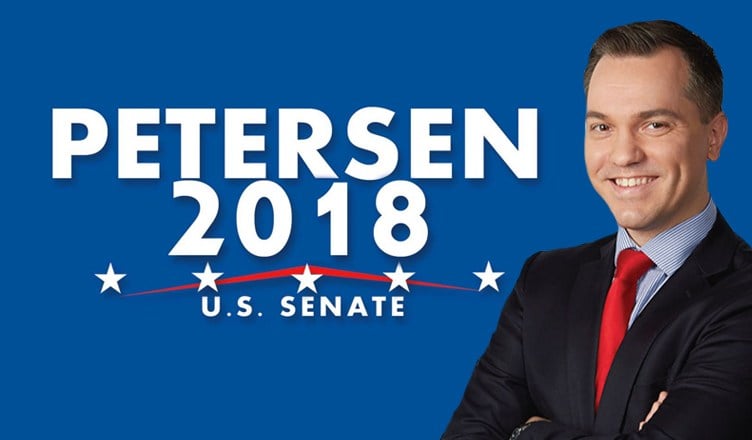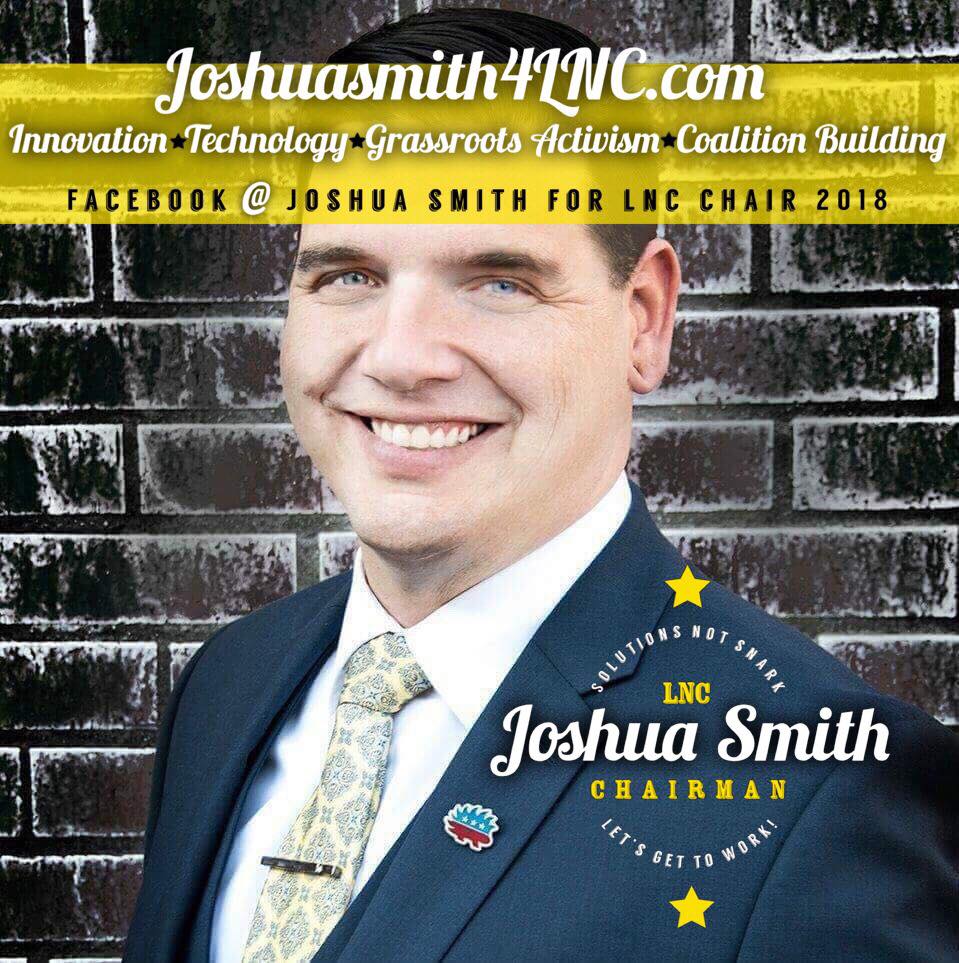US Senate candidate Austin Petersen revealed his campaign received, and promptly returned, a giant amount of bitcoin this week, as the donation ran afoul of financing laws. Leading candidate for the Libertarian Party’s national chair, Joshua Smith, has made cryptocurrency a key part of his platform heading into the convention. Candidate for congress, coder Brian Forde, former MIT Media Lab digital currency director, and one-time technology advisor to President Obama, came out strongly in favor of cryptocurrency. The community is divided about political influence generally, but if there must be politicians it’s probably a positive sign some are warming to crypto like never before.
US Senate Candidate Austin Petersen Returns $130,000 Bitcoin Donation
“To whoever tried to give us $130,276 in #Bitcoin on Saturday,” posted US Senate hopeful Austin Petersen in what had to be a tortuous Facebook message, “we had to refuse your donation. Please donate $5,400 to http://austinpetersen.com/bitcoin in order to comply with FEC regulations. Also, start a PAC or something mate!”
Mr. Petersen is a well known figure in liberty circles. His background includes producing Fox political shows, founding influential website The Libertarian Republic, along with coming third in the race for the Libertarian Party’s presidential nomination in 2016. He’s currently mounting an outsider campaign for Missouri’s Republican US Senate nomination. Should he win the nomination this August, he’ll face incumbent Senator Claire McCaskill, Democrat, in November.

Mr. Petersen’s embrace of bitcoin is well documented, and he’s openly run on a platform embracing money’s future. It’s actually not the first time his campaign has had to return a crypto donation. Twice before he’s sent back hundreds of thousands of dollars worth. He holds the record as receiving the most legally donated bitcoin, roughly $4,500. If recent polling numbers are to be believed, Mr. Petersen is some 30% percent off the pace for the nomination.
Mr. Petersen’s campaign manager told ABC News, “I think it goes without saying we’re going to see a lot more of this in terms of campaign contributions and campaign financing.”
Coder Brian Forde’s Run for Congress
It started as a slur. Mr. Forde’s opponent branded him a bitcoin apologist for accepting donations, insinuating something sinister. Brian Forde, candidate for Congress, responded, “My supporters didn’t HODL, but they made donations to my campaign in bitcoin because they have faith in the technology. The comments accusing my supporters are completely inaccurate, sensationalist and it is due to my opponent’s lack of understanding of the technology. My supporters wouldn’t have donated to the campaign if they were just trying to speculate.” 
Mr. Forde wrote some of the earliest and highest-up memorandums for the US government regarding cryptocurrency while in the Obama administration. His accuser was a former SEC attorney, which might explain the hostility and misunderstanding of financial impropriety. Mr. Forde’s campaign was backed by luminaries in the crypto ecosystem such as venture capitalist Mike Novogratz and even the Winklevoss twins. Ultimately, Mr. Forde came in a distant fourth place among six candidates, and so will have to wait at least another two years if he’s inclined to mount another challenge.
Joshua Smith Challenges Libertarian Party Insiders for Party Chair
The United States’ most viable third party option is the Libertarian Party. In recent years, some have seen the leadership of the party fawn and beckon very mainstream candidates to its national platform. And while there might be nothing wrong with that strategy per se, libertarians such as Joshua Smith wondered what the point of even being a libertarian was if the official party offered up basically the same type of candidates as the two majors. Rather than just moan about it, Mr. Smith threw his hat in the ring, and is running for the Chair position as an insurgent candidate. Among his disagreements with previous, current leadership is how they’ve not done enough to welcome the crypto community, a seemingly natural constituency.
“We also need to do a better job of leveraging our membership’s connections within the Crypto community as a fundraising avenue,” he posted. “Right now, there are literally billions of dollars wrapped up in Crypto, with the majority of those currently investing being very Libertarian-minded people. Building coalitions with this community can help change our financial situation immensely, as well as quickly, and serves the added bonus of bringing new members to the party. I have already started building coalitions among libertarians involved with Crypto-community leaders such as Nexus and Vector Space Systems and would continue to build upon these efforts as LNC Chair.”
 The electoral process will end at the Libertarian National Convention, held this year in New Orleans (June 30th through July 3rd). It promises to be a very interesting battle for the party’s soul. Mr. Smith continues, “It is worth remembering that the millions of people who make up the Crypto and Blockchain communities also make up a large portion of the people in this country who do not vote, as political parties have never made it a point to advocate for their interests. This all changed two weeks ago, when I and others passionate about this issue showed up to an LNC meeting and were able to get a Blockchain Committee voted on and put into place. As a result of that effort, we are now the first American political party actively pursuing blockchain solutions for party issues, as well as continuing to look for creative ways to advocate and fight for causes that are near and dear to the Crypto-community. Continued focus in this area will allow for both the growth of our party, as well as the retention of those who see the promise in this most ‘free-market’ of technologies.”
The electoral process will end at the Libertarian National Convention, held this year in New Orleans (June 30th through July 3rd). It promises to be a very interesting battle for the party’s soul. Mr. Smith continues, “It is worth remembering that the millions of people who make up the Crypto and Blockchain communities also make up a large portion of the people in this country who do not vote, as political parties have never made it a point to advocate for their interests. This all changed two weeks ago, when I and others passionate about this issue showed up to an LNC meeting and were able to get a Blockchain Committee voted on and put into place. As a result of that effort, we are now the first American political party actively pursuing blockchain solutions for party issues, as well as continuing to look for creative ways to advocate and fight for causes that are near and dear to the Crypto-community. Continued focus in this area will allow for both the growth of our party, as well as the retention of those who see the promise in this most ‘free-market’ of technologies.”
Should bitcoin be involved in politics?
Let us know what you think in the comment box below.
At Altecho Trading and Exchange Limited- ATEL, we give you news, opinions, advice and research on Crypto-currency (eCurrency, digital currency), computer/general security issues and the latest internet threats.
Credit: C. Edward Kelso +Atel



